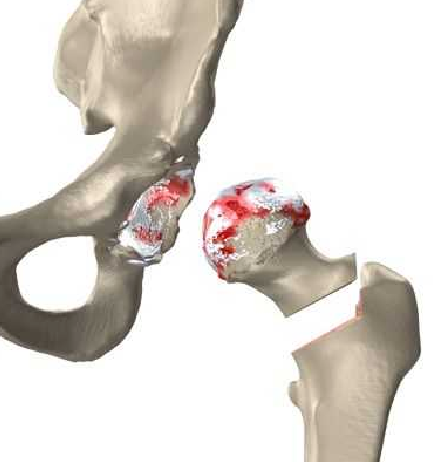Our joints are the connections between skeletal bones that help us be active each day. The interconnected bones serve us well throughout our lives, but there may come a time when the wear and tear on them become too much for the body to repair by itself.
Joint replacement surgery happens to replace the entire joint between two bones. Patients would opt for this surgical procedure to improve their quality of life, as a dysfunctional joint could cause unbearable pain and discomfort.
Not everyone has the same lifestyle, which may significantly influence how our joints remain healthy and functional. There are a few possible signs to look out for that could give a good indication that you may need joint replacement surgery:
A Healthcare Provider Suggests A Replacement
The general practitioner that looks after our physical health would know our medical history best. They would often make suggestions to patients for treatments and procedures that they believe would be the best for their patients. Their professional opinion should carry weight when replacing any joints of the body.
Doctors will notice the deterioration of our health and well-being over the weeks and months that we visit them for the various aches and pains we may have. They will have the necessary medical knowledge to make a diagnosis and provide a referral to a reputable surgeon like the ones at https://www.aaronaltenburgmd.com/, for example.
It would be extensive surgery to replace a joint, and doctors won’t suggest it if it isn’t in their patient’s best interest. Primary care physicians would also evaluate the patient’s state of mind to qualify them for the surgery. They need to see that their patient will be able to make it through the intense pain and recovery process before they can approve them.
Non-Invasive Therapies Don’t Work
In most cases of joint degradation, patients will notice a faint aching that builds up to a more significant, chronic pain later on. Patients will seek non-invasive ways to manage the pain and discomfort during the early onset of their symptoms.
Prescription medication and physical therapies are some of the go-to treatments that patients would try before making the drastic and life-altering decision to replace the joint. Physiotherapists and other movement specialists could do their best to provide support and care to patients with mobility problems. Still, at some stage, during their sessions, the therapist would realize that the patient may need more.
In addition to the therapies, frequent visits to the doctor or a healthcare clinic for injections and medication could become the norm. Doctors may prescribe pain relievers and steroids for joint problems, but these medications have a long list of adverse side effects. The chronic use of these medications may have terrible effects on the liver and kidneys and may even cause them to stop working correctly.
The condition of the joints may continue to degrade, despite the best efforts of the patient to remain fit and healthy, with some even adding daily supplements to their diets. When patients reach a point where none of these therapies, treatments, or medications are working, it may be time to consider going for a joint replacement.
Daily Tasks Become Unbearable
Everyone has responsibilities that they need to fulfill. Looking after the family, housework, our jobs, and other commitments make out vast parts of our day. Patients struggling with joint problems will notice that it becomes increasingly taxing to keep up with their responsibilities.
Some learn to cope with the deficit by starting to do things differently or increasing their pain and inflammation medications. Patients need to realize that expanding their coping mechanisms is no longer healthy. They know that they would need more help to get through their day.
Patients should discuss joint replacement surgery with their primary physician when their struggles with pain and stiffness affect their primary care, like brushing their teeth and other self-care.
Our joints have a wide range of motion to complete our daily tasks with ease. Once we lose this range of motion, it becomes increasingly difficult to finish even the most mundane job. Patients become despondent and feel helpless, which affects their self-esteem.
There Are Visible Signs Of Joint Damage
When the pain and discomfort are unbearable, doctors recommend that the patient goes for x-rays or other forms of radiography to determine the extent of their joint’s condition. If the results return and there are visible signs of damage due to arthritis or prolonged heavy physical activity, a joint replacement surgery would be the best option.
Often, prolonged or severe joint damage would influence other bodily functions and systems where patients need multiple treatments. Should patients have a hip that needs replacing, they would overuse the other leg to compensate for the pain in the affected joint. The overuse of healthy joints may cause them to deteriorate as well.
Localized inflammation at the painful joint may become systemic inflammation that attacks other healthy systems of the body. In these cases, the patient’s illness may become a chronic, auto-immune response that is much harder to treat. Chronic inflammation is detectable from doing blood tests, and doctors would visibly see the effects on the body’s systems.

Your Mental Health Is Declining
Not being able to move freely and participate in the activities you used to enjoy could be depressing. Active and independent people who lived their lives one thrill at a time may be caught in a downward slope of declining mental health when they experience the chronic pain of their inflamed joints.
Performance anxiety can start to form when patients realize that they may not be able to meet the expectations of loved ones, friends, or their jobs. When mental well-being and physical health start to decline, patients are more likely to fall into a pit of despair. It may take a lot of effort to get these patients back on track when they are in this state.
Joint replacement surgery could assist with the recovery process by restoring some of the functions that the person lost from the damaged joint. When they can resume their daily habits, patients tend to improve their mental health.
Patients who have a predisposed tendency to be depressed or have other mental health problems would have to be monitored closely during the recovery period. Recovery is a very emotionally trying time that involves pain, therapy, and dependence on others for support.
Complete Loss Of Function
Not all joint issues are progressive. Complete loss of function due to a traumatic injury could also be why patients need joint replacement surgery. Car accidents and combat injuries could result in irreparable damage to the joints.
A heavy blow to any one of the body’s joints could impair its function so that the only remaining option would be to replace it. Motor vehicle accidents and gunshots may cause extreme damage to various body parts. Knees and hips are often some of the major joints that sustain an injury, and these are also some of the most common joints that need replacing in general.
People that choose high-risk work environments should prepare for the consequences of their choices by remaining aware that they could, in the future, have to undergo joint replacement surgery. Although most employers take the utmost care to protect their employees from harm, accidents could still happen.
Many Joint Procedures Earlier In Life
Complications from old injuries to the joints, like knee injuries from sports, could affect the progression of joint damage. Some patients may report a long history of problems with their joints before finally needing to opt for joint replacement surgery.
People who partake in physical sports do work that has prolonged physical activity, and repeated injury due to other causes would more often than not require a joint replacement. Trauma to the cartilage obtained during these injuries speeds up the deterioration of the entire joint.
Patients would sometimes have to undergo a few minor procedures or treatments like frequent pain injections earlier because of their lifestyle’s effect on the joints. Constant struggles or chronic issues with these joints could indicate that the person would need a replacement later on.
When You Experience Loss Of Sleep
Getting enough sleep is extremely important as our brains and bodies need it to recharge for the next day. When pain and discomfort keep us up at night, there is little to no rest for that person. The results could include brain fog, diminished concentration, and critical thinking, constant feelings of restlessness, and overwhelming tiredness throughout the day.
The pain experienced by patients with joint problems could be so intense that sleep positioning, medications, and relaxation techniques are no match. The only viable option would be to replace the connection between the bones that is causing them sleepless nights.
People would experience improved sleep patterns and a better night’s rest after they have recovered from the joint replacement surgery. During recovery, there may be some sleepless nights from the pain and swelling post-surgery, but overall, patients who heal well will have a good night’s sleep to look forward to once they are well enough.

Hereditary And Chronic Illnesses
Medical conditions that we inherit from our parents or other family members could indicate joint replacement surgery from their first onset. Another affliction that may cause extreme discomfort and loss of bone structure would be certain kinds of cancer.
Hereditary conditions like rheumatic illnesses and arthritis-like conditions, including Gout, cause connective tissue and cartilage to no longer protect the joints as they should, causing them to lose functioning.
Those with a family history of joint-related problems or illnesses can go for regular screenings with their primary care physician. Early detection could prevent the need for joint replacement surgery at a young age.
Some forms of cancer would invade the bone and structures around the bones, which is detrimental to the patient’s overall joint health. Surgeons would have to remove the cancerous tissue and sometimes the joints to save a patient’s life.
Being Extremely Overweight
Being overweight puts immense strain on the joints, especially the hips, knees, and ankles. These patients often have years of damage to their joints that accumulate over time. Unfortunately, there is no quick option to restore their active status.
Before considering these patients for joint replacement surgeries, doctors would recommend that they lose excess weight. There would be no use in replacing the joints due to the severe strain placed on them by the weight when the patient goes back to their old ways after the surgery.
These patients often have to be monitored very closely during and after surgery as the increased strain has been on their joints and the heart, lungs, and other systems. They are more likely to suffer from complications from the surgery hence the increase in concern.
Joint replacements from being overweight are preventable conditions, and patients should keep an eye on their weight by eating healthy and remaining active. When our bodies are fit and healthy, they are less likely to overwork themselves and cause health problems that may later require surgery.
The Final Diagnosis
There are many reasons people would consider having joint replacement surgery. Doctors should be the patient’s first port of call to find the best possible solution for their specific situation. Not all patients would meet the criteria for the procedure, and a physician would give insight into this for the person needing to decide.
Any replacement surgery is a massive medical procedure with an extended recovery period that all patients should know before going to the theatre. Going under the knife has many side effects and risks to consider, and patients shouldn’t treat it lightly.
If you have tried all else and the only way to ease the pain and suffering is to have the joint replaced, ask for a referral from your primary care physician. Make sure that the surgeon performing the massive task is certified, professional, and knowledgeable enough to handle the responsibility of giving you your health back.
